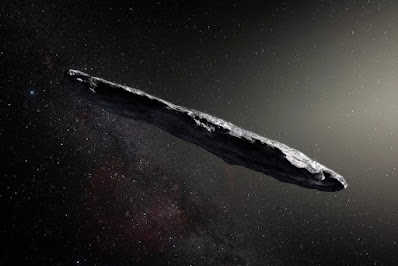Are we ready, one may wonder, to recognise extraterrestrial technology?
Astronomer Avi Loeb, Professor at Harvard, argues that the likelihood of finding extraterrestrial technological objects depends on our willingness to look for them, not just on whether extraterrestrials had sent them.
So, mathematising this view he has arrived at two mathematical equations regarding the number of objects found in each search snapshot "N" and the rate of new objects crossing the search area per unit time "R", when extraterrestrial objects are searched by our terrestrial instruments.
Professor Avi Loeb's equations are as follows:
N=n*V*(1-O)
R=n*v*A*(1-O)
where,
n, the number of relics per unit volume
V, the volume surveyed by our terrestrial instruments
O, the likelihood that some scientists or politicians will avoid research (O comes from the word ostrich-like behaviour)
v, the characteristic one-dimensional velocity of the relics along the direction perpendicular to the area of extraterrestrial object capture
A, the area of extraterrestrial object capture

No comments:
Post a Comment